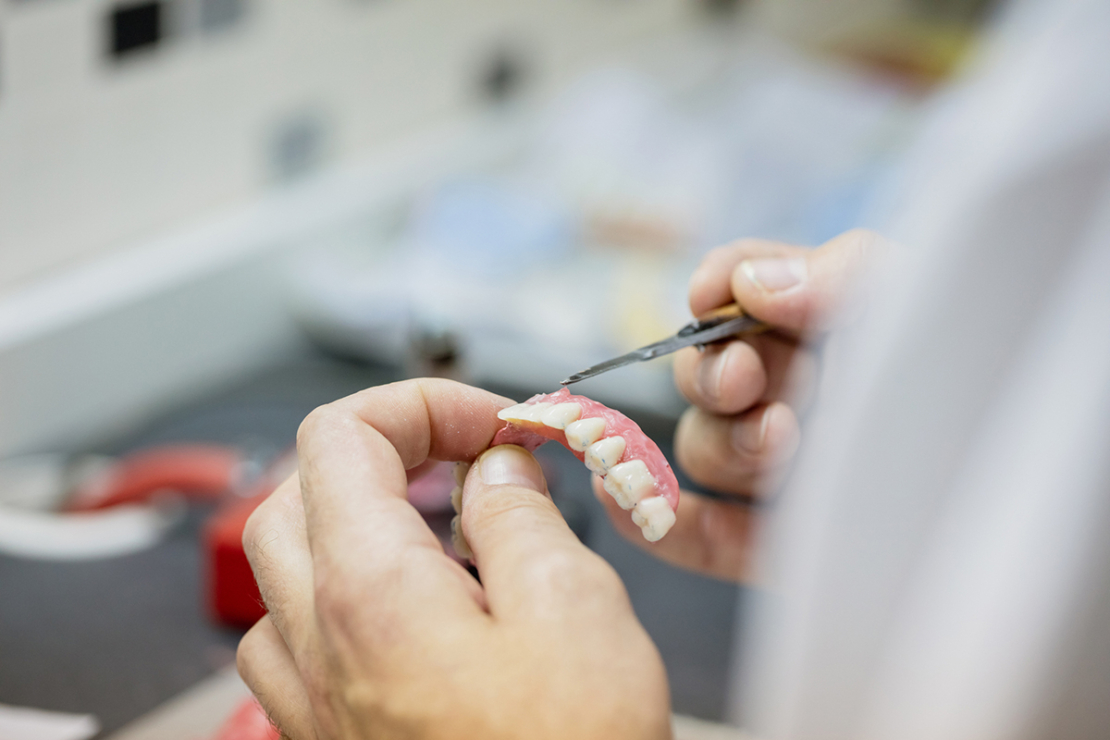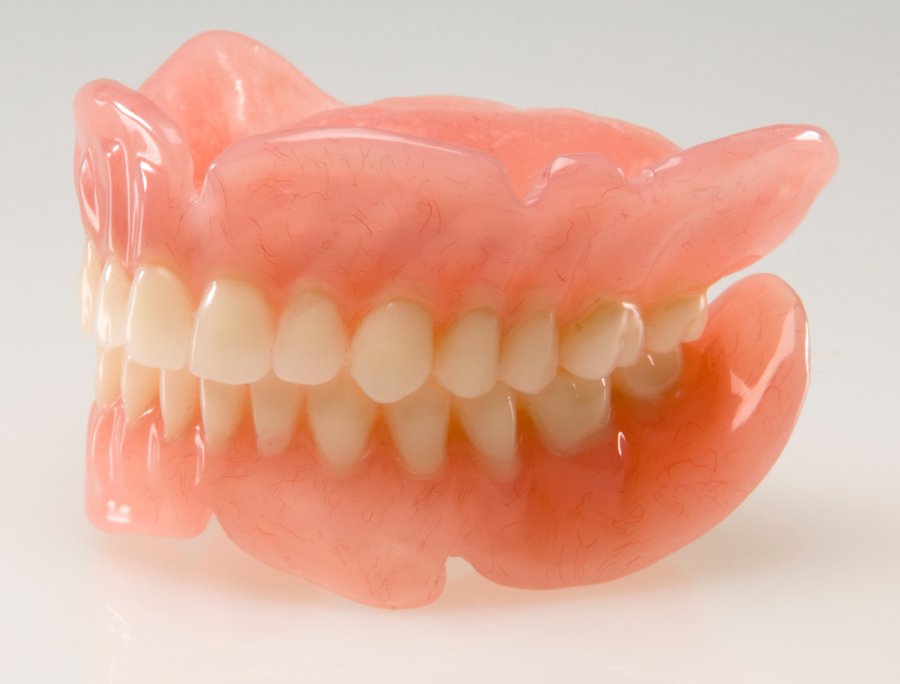A denture is a removable prosthesis used to replace missing teeth. Commonly referred to as ‘false teeth’, a denture is usually made of acrylic or a combination of acrylic and metal. A good set of dentures improves the way you eat and speak, and boosts your confidence by restoring your smile. You can have a partial denture fitted to replace some missing teeth whilst a complete denture is used when all natural teeth are missing.

Why have dentures?
If you are missing a single tooth, or have multiple missing teeth you would like to replace, dentures are a strong, stable and effective option. They are usually made from acrylic, or a combination of acrylic and metal, and modern materials mean that partial dentures will blend in beautifully with existing teeth and complete dentures can pass for the real thing.
Replacing a full set of teeth with complete dentures provides vital support to your facial structure, keeping it from prematurely sagging around your cheeks and jaw. Partial dentures help your remaining natural teeth stay in position, stopping them moving and causing you problems with misalignment.

What is involved in having dentures made?
Making and fitting dentures can be quite an involved process so you may have to attend several appointments to ensure the final set of dentures are a secure and comfy fit.
Following a comprehensive consultation, impressions of your mouth will be taken so a wax model can be produced and checked for fit, bite and comfort. This is changed and adjusted until we are both happy with the look and feel of the model.
Your final set of dentures will be manufactured in a laboratory and, when ready, you will be invited in for a fitting. If you are having complete dentures, these will be fitted in the top or bottom of your mouth. This complete denture will consist of a gum coloured arch with a set of prosthetic teeth attached. Partial dentures will be used if you only have one or a few missing teeth and may be held in place with metal hooks attached to existing teeth.
It can take a little while to get used to your new dentures, so we give you some tailored tips and advice to help.

Useful suggestions to help you adapt to new dentures:
Eating
Eating will take a little practice. Starting with soft foods and foods cut into small pieces will help. Chew slowly using both sides of your mouth at the same time to prevent dentures from tipping. Once you become accustomed to chewing, include other foods until you return to your normal diet.
Increased salivary flow
You may experience an increase in salivary flow when the dentures are first inserted. This is a natural response of the salivary glands that will return to normal after a few weeks. You can improve the situation by swallowing more often.
Speech
New dentures may alter your speech initially. Pronouncing certain words may require practice. Reading out loud and repeating troublesome words will speed up the adaptation process. This problem rarely persists beyond two weeks.
Sore spots
Minor irritation caused by surface irregularities or pressure spots on the denture-bearing areas are quite common. Your dentist will relieve the discomfort by adjusting the denture surface. Stop wearing the denture if the irritation is very painful. Consult your dentist immediately.
Depending on the complexity of each case, the duration of the treatment will vary. After the initial visit of examination and diagnosis, the subsequent visits will include taking impressions of the mouth, bite registration, try-in of the denture, fitting, and review.
New dentures always feel strange when first placed in your mouth. Several days or weeks will be required before you get accustomed to them. Adaptation varies with different persons and often time and experience are essential before dentures can be worn comfortably and function effectively.
You should wear your dentures for around 8 hours a day at least. This gives your jawbone and gums time to get used to the dentures and prevents sore spots from developing. It is preferable to take them out at night time to give your gums a chance to rest.
It’s best to avoid hard & chewy foods, as well as sticky or spicy foods and alcohol while your mouth is sore or healing. To get used to the feeling of dentures, you should try not to rush eating so you can focus on the eating process and take small bites or cut up your food into bitesize pieces so less chewing is required.
Dentures are designed to be hard-wearing, but they will last longer if you treat them with care. Dentures should be removed before you go to bed so your gums can have a rest, but they must be stored in water or denture fluid as they could lose their shape if allowed to dry out.
Clean your dentures with a toothbrush or a special denture brush and remember to keep your gums and any remaining teeth clean too. You will also need to attend regular check-ups so your dentist and hygienist can keep an eye on your oral health.




